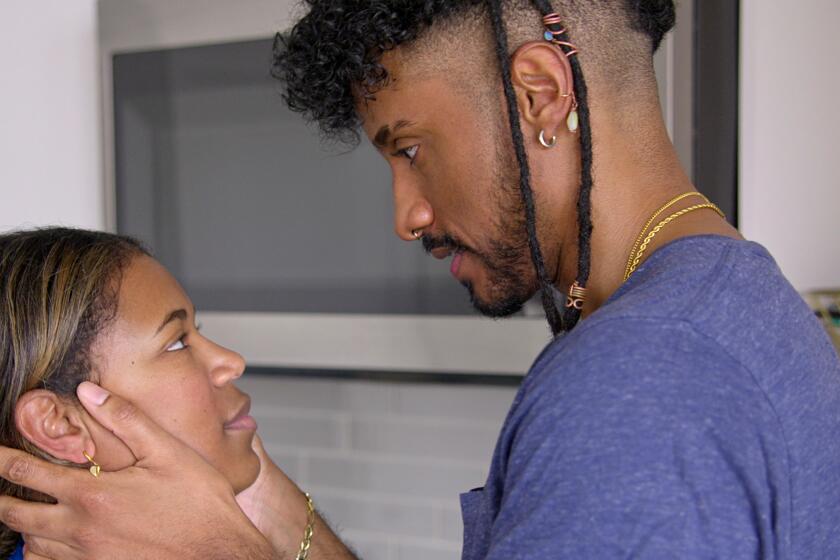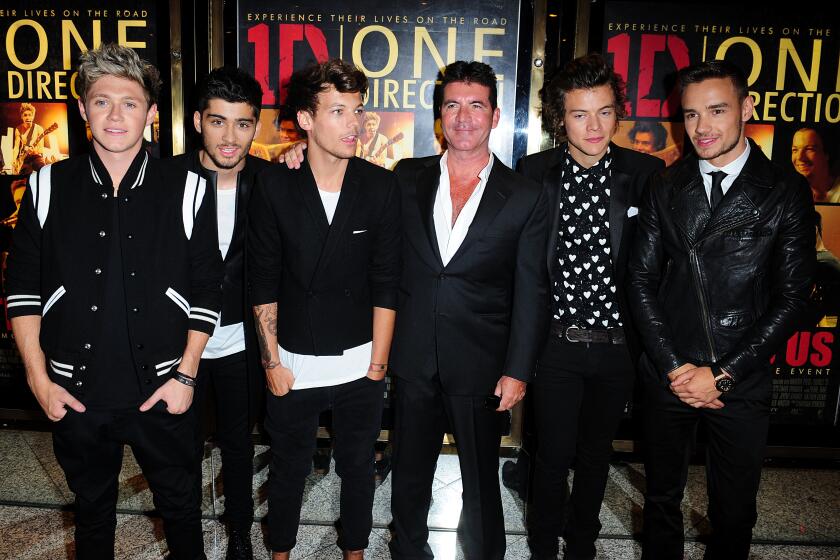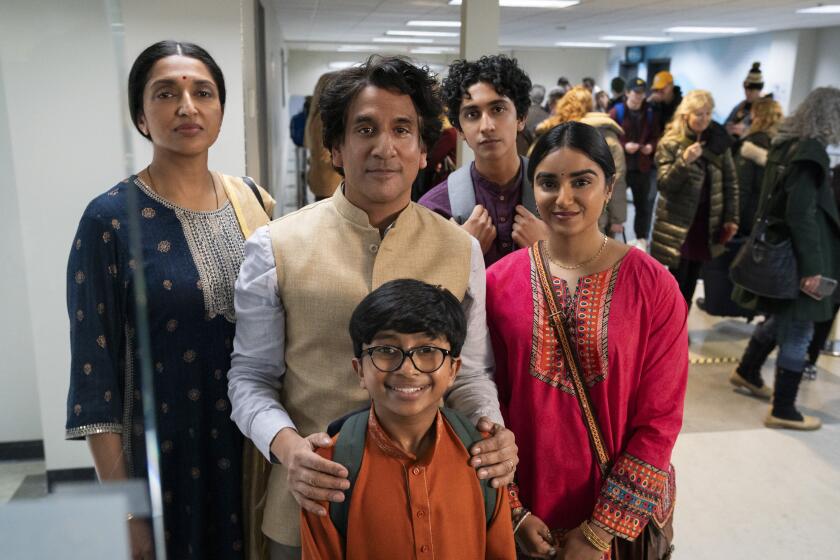AIDS Casts Shadow on Date Shows : Television: Critics say ‘Studs’ promotes promiscuity. Producers say they are not responsible for what couples do.
“One look at him and I wanted to get naked,” quipped a recent contestant on the TV dating show “Studs.”
Television dating programs appeal to their audience through risque and provocative descriptions and sexual innuendo. But with the AIDS epidemic and the escalation of other sexually transmitted diseases, not everyone is taking the show’s suggestive tone lightly.
“Ultimately, they are not being very responsible,” said Anthony Sprauve, director of communications for AIDS Project Los Angeles. “In joking about sex, they are promoting promiscuity. In the format, they give the impression that everyone out there is having a good time and that’s the way it should be.”
AIDS educators also see a problem with the fact that safe sex is never mentioned on the shows. Considering that women between the ages of 25 and 35 and minorities constitute the fastest-growing population of people with AIDS, these activists believe that TV dating shows have what could be a perfect opportunity to educate the primarily under-35 crowd.
“They could interject the point of safe sex without interfering with the fun and spontaneity of the show,” Sprauve said. “There are so many sexual innuendos, and never any mention of safe sex. We should no longer be talking about sex as fun and games, but as a responsibility for oneself and one’s partner.”
Producers, however, say that they are not responsible for what couples do on their dates, and the shows themselves are mere fun, not geared to promote irresponsible behavior.
“We bring people together. If they like each other, they can date; if not, we are not forcing anything,” said Rick Rosner, co-creator of “Personals,” a late-night dating show on CBS. He said that his show gives the winning couple separate airline tickets and separate hotel rooms, enabling them to keep their distance from one another if they so choose.
David Pringle, former contestant coordinator for “Love Connection” and “Personals,” said that during the interview process when guests are chosen, shows avoid mentioning the possibility of sex on a date, and therefore safe sex is also not an issue.
“The shows I worked on never brought up safe sex, because we didn’t bring up the fact that you were going to have sex,” Pringle said. “If, afterward, they said they made love all night long, we didn’t follow up with ‘Did you do it safely?’ At that point it is out of our hands. We didn’t promote sex; it wasn’t an issue. But it made a better show if they did make love all night long.”
The programs do protect themselves, however, in the event of any problems on a date. Contestants on most shows sign a standard release form waiving the production companies’ liability.
“Studs,” however, which sends two men on blind dates with the same three women, has its own release form. That form acknowledges that none of the individuals selected as guests has been screened for “any medical or health problems, a criminal record, or a propensity for criminal or antisocial behavior.”
It goes on to stress the contestant’s responsibility to minimize his or her risks of “non-consensual physical contact; communicable sexual diseases; personal injury or property damage; permanent disability or death; emotional distress; invasion of privacy; slander and libel.”
Despite possible threats to life and limb, countless contestants have braved the odds of injury and infection and report positive experiences from their stints on the various love shows.
“The only reason I did the show was for fun,” said Tracy Finegan, 27, a former “Personals” contestant. “I felt no pressure to do anything. It’s not a sex show, it just opens the doors to meet people. Whatever happens after that is your responsibility as an adult. It’s up to you to be careful.”
The complete guide to home viewing
Get Screen Gab for everything about the TV shows and streaming movies everyone’s talking about.
You may occasionally receive promotional content from the Los Angeles Times.



